House Judiciary Committee Approves Bill to End Marijuana Prohibition

Historic vote marks the first time the committee has approved comprehensive legislation to remove cannabis from the schedule of controlled substances and address harms caused by prohibition
WASHINGTON, D.C. – In a 24-10 vote, the House Judiciary Committee approved a bill that would effectively end marijuana prohibition on Wednesday. The Marijuana Opportunity Reinvestment and Expungement (MORE) Act of 2019, or H.R. 3884, was introduced by House Judiciary Committee Chairman Jerrold Nadler (D-NY) and currently has 55 cosponsors. This is the first time that a congressional committee has approved a bill to make cannabis legal.
The MORE Act would federally decriminalize cannabis by removing it from the Controlled Substances Act, and would require the expungement of past federal cannabis convictions. The bill would establish a Cannabis Justice Office to administer a program to reinvest resources in the communities that have been most heavily impacted by prohibition, funded by a 5% tax on state-legal cannabis commerce. It would also allow the Small Business Administration to provide loans and grants to cannabis-related businesses and support state and local equity licensing programs, and would permit doctors within the Veterans Affairs system to recommend medical cannabis to patients in accordance with applicable state laws.
“Today’s vote marks a turning point for federal cannabis policy, and is truly a sign that prohibition’s days are numbered,” said Aaron Smith, executive director of the National Cannabis Industry Association (NCIA). “Thanks to the diligent efforts of advocates and lawmakers from across the political spectrum, we’ve seen more progress in this Congress than ever before. Supermajority public support for legalization, increasing recognition of the devastating impacts of prohibition on marginalized communities and people of color, and the undeniable success of state cannabis programs throughout the country are all helping to build momentum for comprehensive change in the foreseeable future.”
A Pew Research Center survey released last week showed record support for making marijuana legal, with 67% of all adults in favor of legalization – including a majority of Republican respondents.
A recent amendment to the bill included the addition of language contained in the Realizing Equitable & Sustainable Participation in Emerging Cannabis Trades (RESPECT) Resolution introduced by Rep. Barbara Lee (D-CA). This resolution was the basis for a paper released by NCIA earlier this year on specific policy goals that can help ensure fairness and equal representation in the cannabis industry.
“There is still much work to be done, including the establishment of sound federal regulations for cannabis products,” continued Smith. “This vote brings us one step closer to ending the disaster that is prohibition and repairing the harms it has caused while we continue the discussion in Congress about how to best regulate cannabis at the federal level. We urge lawmakers to move forward with this necessary bill without delay.”
Last month, NCIA released an in-depth set of recommendations that should be used to establish a federal regulatory structure for different types of cannabis and hemp products through existing federal agencies so that cannabis products can be effectively regulated similarly to alcohol and other consumables.
###
Cannabis Industry Leaders Urge Congress to Deschedule and Regulate in Response to Vaping Illnesses
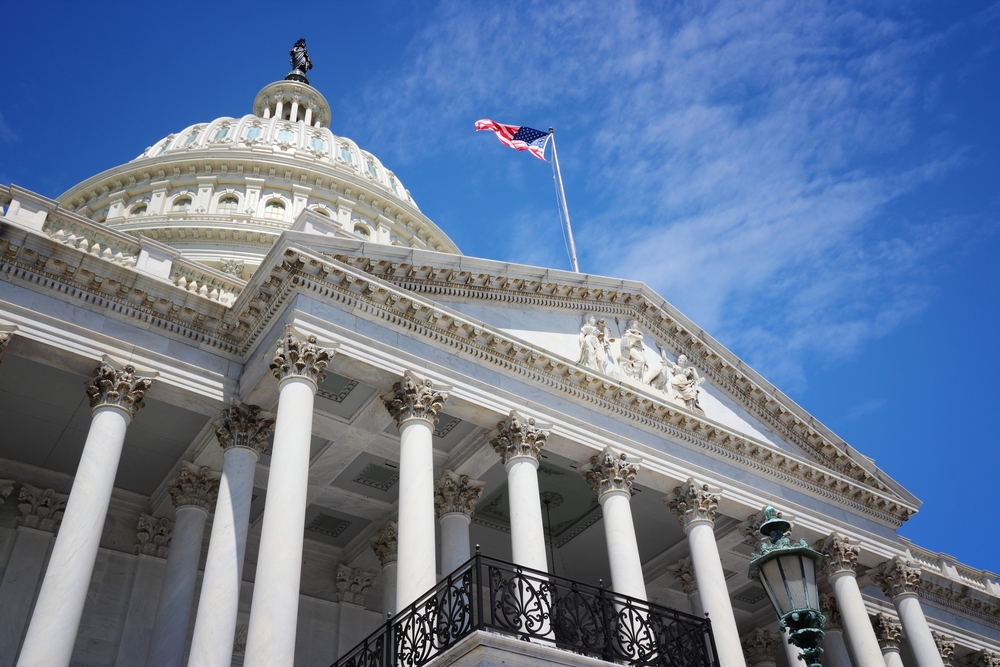
National Cannabis Industry Association delivered letter to lawmakers today signed by nearly 800 businesses and advocates suggesting federal regulatory structure to improve public safety
WASHINGTON, D.C. – The National Cannabis Industry Association (NCIA) delivered a letter to both chambers of Congress on Thursday urging sensible and timely federal action in response to increasing reports of illnesses largely tied to illicit market vape cartridge products. The letter, which was signed by nearly 800 business leaders, advocates, and policy experts, asks lawmakers to immediately work to remove cannabis from the Controlled Substances Act so that cannabis products can be effectively regulated at the federal level. These actions would remove barriers to research, allow the federal government to establish uniform safety protocols and provide guidance to state regulatory bodies, and help displace the illicit unregulated cannabis market that is the source of the vast majority of the products tied to illness cases.
The full text of the letter with signatories is available here.
“This outbreak of illnesses is a terrible and unnecessary tragedy, and the direct result of failed prohibition policies,” said Aaron Smith, executive director of the National Cannabis Industry. “It is imperative that lawmakers understand this, and know that the cannabis industry is committed to working with them to help solve this issue and prevent further suffering. We have the tools to protect cannabis consumers and improve public safety, and are ready to help Congress implement them without delay.”
Earlier this week, NCIA released an in-depth set of recommendations that should be used to establish a federal regulatory structure for different types of cannabis and hemp products through existing federal agencies.
“State regulators and responsible, licensed cannabis businesses have been doing an excellent job at keeping potentially dangerous products out of the legal market,” continued Smith. “We urge Congress to help us continue – and improve upon – this record by ending prohibition and creating an efficient and intelligent national regulatory structure.”
###
NCIA Releases Guidelines for Federal Cannabis Regulation After Legalization
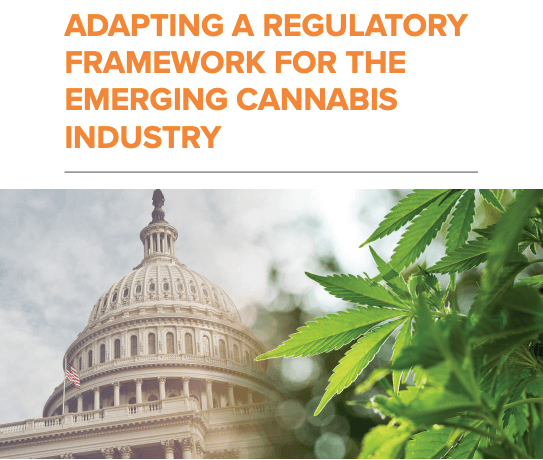
Report urges Congress to remove cannabis from the Controlled Substances Act; suggests classifications for different cannabis products, most appropriate federal agencies and methods to regulate them
WASHINGTON, D.C. – On Tuesday, the National Cannabis Industry Association (NCIA) announced the release of a paper providing extensive guidance on how cannabis should be regulated at the federal level. The paper highlights the need to have a clearly defined regulatory approach and structure prepared as the nation moves closer to making cannabis legal for adults, and identifies the existing agencies best suited to regulate the wide variety of cannabis products available in state-regulated legal cannabis markets.
The full paper, which was produced by NCIA’s Policy Council, is titled “Adapting a Regulatory Framework for the Emerging Cannabis Industry” and can be found here.
“As a country, we are starting to move past whether we should end cannabis prohibition, and need to put serious consideration into how we do that and what a post-legalization world looks like in terms of federal regulatory policy,” said Aaron Smith, executive director of the National Cannabis Industry Association. “The recommendations outlined in this report build on successful methodologies by assigning regulatory duties to existing agencies, while avoiding restrictions that would not be appropriate for cannabis as well as some of the missteps that have occurred with other products. We look forward to working with Congress to overturn our outdated federal marijuana laws and begin implementing this structure to help ensure public safety and displace the illicit cannabis market.”
The variety of products that contain cannabis means that a “one-size-fits-all” regulatory framework would be ineffective. Under such a framework, some products would be overregulated, while others might be underregulated. Instead, different regulatory structures, or “lanes,” should be utilized based on the characteristics and intended uses of the products to leverage existing federal regulatory expertise. This will lead to an effective and efficient review process for existing government agencies, specifically the Food and Drug Administration (FDA) and the Alcohol and Tobacco Tax and Trade Bureau (TTB), that avoids unnecessary bureaucracy, costs, and delays for cannabis companies or the government. Because human consumables are already regulated by the federal government through a variety of regulatory lanes designed for these purposes, most cannabis products could simply follow analogous products already being sold legally through these lanes, which the paper defines as follows:
• Lane #1 — Pharmaceutical drugs (eg: Epidiolex; Marinol) (Regulated Like Prescription Drugs; Lead Federal Regulator: FDA)
• Lane #2 — Ingested, inhaled or topically applied products with more than de minimis amounts of THC (+0.3%) (Regulated Like Alcohol; Lead Federal Regulator: TTB)
• Lane #3 — Ingested and inhaled products with de minimis amounts of THC (<0.3% THC) (Regulated Like Food/Dietary Supplements; Lead Regulator: FDA)
• Lane #4 — Topically applied products with de minimis amounts of THC (<0.3% THC) (Regulated Like Cosmetics; Lead Federal Regulator: FDA)
The paper also explains some of the reasons why removing cannabis from the Controlled Substances Act, rather than moving it to a different schedule, is necessary for the effective implementation of federal regulations.
“This approach will help us protect consumers, foster research, and provide guidance for the growing number of states that are regulating cannabis for adult and medical purposes as we work to repair the harms caused by prohibition,” continued Smith.
Cannabis is legal for adults in 11 states as well as the District of Columbia and the territories of CNMI and Guam, and 33 states as well as several territories have comprehensive medical cannabis laws. The substance is legal in some form in 47 states. Last week, the House of Representatives overwhelmingly approved the first standalone cannabis legislation to receive a vote in Congress, the SAFE Banking Act, which would allow financial services providers to work with state-legal cannabis, hemp, and ancillary businesses.
###
New Report Adds to Evidence Tying Vaping Illnesses to Illicit Products

NBC News study tested regulated and illicit market vape cartridges, finding potentially dangerous contaminants only in illegal products
National Cannabis Industry Association warns that banning regulated & tested products could make problems worse
WASHINGTON, D.C. – Following increasing reports of illnesses and deaths primarily related to illicit market cannabis and nicotine products, the National Cannabis Industry Association is urging state and local governments to use caution when instituting policies that could drive consumers to the illicit market. Most reports that have become public show that these cases are almost entirely associated with unregulated products, and no definitive links between regulated products and vaping illnesses have been confirmed.
On Friday, NBC News released a report based on testing of regulated and illicit market products. The report showed that almost all of the illicit market products contained potentially dangerous contaminants, including Vitamin E acetate, which has been linked to a number of illness cases, and a fungicide that produces hydrogen cyanide. None of the regulated products tested contained these chemicals. While not conclusive, this study adds to the evidence distancing the legal cannabis market from this outbreak.
Nevertheless, state and local governments are considering bans on all vape products, including those that are produced and sold under strict state regulatory controls. Massachusetts recently enacted a 4 month ban on all vape cartridges.
“This unfortunate situation continues to highlight the need to support state regulatory systems, as well as to deschedule and regulate cannabis products at the federal level,” said Aaron Smith, executive director of the National Cannabis Industry Association (NCIA). “It is increasingly clear that the root causes of these illnesses most likely lie in the illicit market. Banning regulated and quality-controlled vape products could very easily exacerbate this problem. Instead of stamping out the illicit market, preventing consumers from accessing reliable, tested products will drive many of them to purchase unregulated and potentially dangerous products instead, and the lack of competition from legal sources will only incentivize underground producers to increase production and cut more corners, possibly making their products even more deadly. Banning regulated products literally hands the vape market to the people most responsible for this widespread health problem on a silver platter.”
“We hope states and localities think twice before repeating the mistakes of prohibition, and we strongly urge consumers to avoid illicit market products and only purchase regulated cannabis products at licensed retail establishments,” continued Smith. “Furthermore, we ask Congress to immediately begin the process of descheduling cannabis and to work with public health officials, medical experts, and other stakeholders to sensibly regulate this substance at the federal level.”
###
House of Representatives Approves Cannabis Banking Reform in Landmark Vote
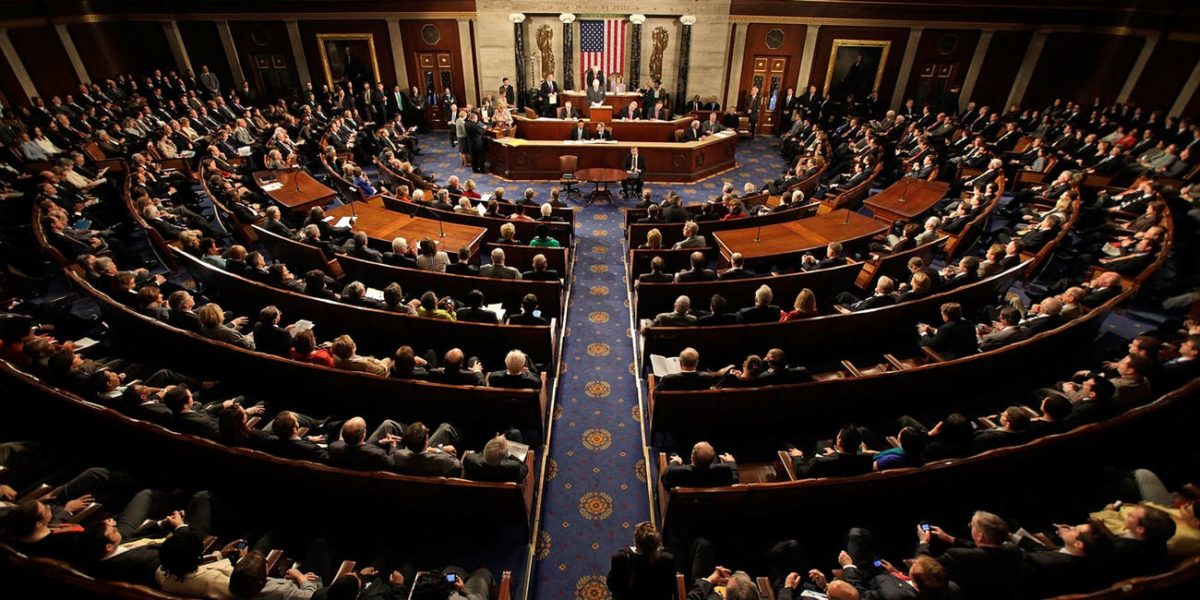
SAFE Banking Act would provide safe harbor for banks and lenders to work with state-legal cannabis businesses to address public safety, transparency, and access to capital
** Press conference THURSDAY at House Triangle at 2:30p with lawmakers and advocates **
WASHINGTON, D.C. – For the first time in history, a standalone cannabis policy reform bill was brought before the House of Representatives for a vote and passed with an overwhelming bipartisan majority. The Secure and Fair Enforcement (SAFE) Banking Act of 2019, or H.R. 1595, was approved 321-103, including nearly half of voting Republicans, in a suspension vote on Wednesday.
“Having worked alongside Congressional leaders to resolve the cannabis industry’s banking access issues for over six years, it’s incredibly gratifying to see this strong bipartisan showing of support in today’s House vote,” said Aaron Smith, executive director of the National Cannabis Industry Association (NCIA). “We owe a great debt of gratitude to the bill sponsors, who have been working with us to move this issue forward long before anyone else thought it was worth the effort.”
Due to current federal laws and financial regulations, most banks are unwilling to risk prosecution or punishment to work with state-legal cannabis businesses and often ancillary businesses that service the cannabis industry. This forces many businesses in this space to operate almost entirely in cash, creating public safety issues for everyone involved, from businesses and their employees to tax collectors and regulators. These policies also hinder the efforts of regulators and law enforcement to effectively monitor the legal cannabis market. Financial services institutions are also unable to provide loans to people in the cannabis industry, which disproportionately impacts small businesses and marginalized communities with less access to personal wealth or investment capital.
The SAFE Banking Act as approved in the House would prevent federal banking regulators from punishing banks for working with cannabis- and hemp-related businesses that are obeying state laws. The bill would protect ancillary businesses that work with the cannabis industry from being charged with money laundering and other financial crimes, and requires the Financial Institution Examination Council to develop guidance to help credit unions and banks understand how to lawfully serve cannabis businesses. Access to capital for small businesses would be increased by allowing traditional lending from financial service provides, and regular reporting on loan practices involving women and people of color in the cannabis industry would be required.
H.R. 1595 was introduced in this session by Reps. Ed Perlmutter (D-CO), Denny Heck (D-WA), Steve Stivers (R-OH), and Warren Davidson (R-OH) with more than 100 other original cosponsors, eventually reaching 206 cosponsors prior to the vote Wednesday.
“Now, it’s time for the Senate to take swift action to approve the SAFE Banking Act so that this commonsense legislation can make its way to the President’s desk,” continued Smith. “This bipartisan legislation is vital to protecting public safety, fostering transparency, and leveling the playing field for small businesses in the growing number of states with successful cannabis programs.”
The Senate version of the SAFE Banking Act, S. 1200, was introduced by Sens. Cory Gardner (R-CO) and Jeff Merkley (D-OR) in April. The Senate Banking Committee held a hearing on the issue in July, and Banking Committee Chairman Mike Crapo (R-ID) recently announced that cannabis banking legislation is being seriously considered in that chamber.
NCIA will host a press conference with lawmakers and allied organizations to discuss the vote on Thursday, September 26 at 2:30 p.m. ET at the House Triangle, just outside the U.S. Capitol.
###
National Cannabis Industry Association Calls on Congress to Regulate Cannabis in Response to Reports of Vaping-Related Illnesses

Advocates cite prohibition as main driver of illicit market products linked to most cases, urge federal action, caution from producers of state-legal cannabis vape products
** Statement below from National Cannabis Industry Association Executive Director Aaron Smith **
WASHINGTON, D.C. – In recent weeks, a growing number of respiratory illness cases associated with nicotine or cannabis vaporizer (vape) cartridges have been reported, leading to increasing concern among cannabis vape cartridge consumers, regulators, and medical experts. As of early this week, more than 450 cases have been reported nationwide, including six fatal cases.
The vast majority of these reports have been linked to vape cartridges that were produced and obtained in the illicit and unregulated market, or that were adulterated by consumers. The minute number of cases that have so far been associated with legal cannabis products have not shown definitive links to those specific products. Cases have been reported in states with and without regulated cannabis markets.
Preliminary research has suggested some additive thickening agents, particularly Vitamin E acetate, as a likely cause for many of these cases. This is so far inconclusive, however, and other possible causes including pre-existing medical conditions, faulty delivery devices, or problematic consumption behavior are being explored.
In light of the indeterminate cause(s) of these illnesses and variance in state regulations regarding vape cartridges, the National Cannabis Industry Association (NCIA) makes the following recommendations:
- Congress is urged to immediately remove cannabis from the Controlled Substances Act and begin to sensibly regulate this substance in a manner similar to alcohol and other consumables, and to make funds immediately available to state medical authorities to investigate these cases.
- Licensed vape cartridge producers are encouraged to halt the use, if any, of additive thickening agents until more data is available.
- Given the preliminary reported association of some illness cases with Vitamin E acetate, any licensed producer that has included this additive in recent vape product batches is strongly encouraged to issue a voluntary recall of those products.
- Licensed cannabis retailers are encouraged to take steps to ensure none of their available vape cartridge inventories have been sourced from a producer that uses Vitamin E acetate.
- Cannabis vape cartridge consumers are urged to immediately cease the use of any product obtained from the illicit market and to limit any future purchases of vape cartridges and other cannabis products to state-licensed, regulated businesses.
Statement from Aaron Smith, executive director of the National Cannabis Industry Association:
“These unfortunate illnesses and deaths are yet another terrible, and largely avoidable, consequence of failed prohibition policies. Current federal laws interfere with research, prevent federal regulatory agencies from establishing safety guidelines, discourage states from regulating cannabis, and make it more difficult for state-legal cannabis businesses to displace the illicit market. These policies are directly bolstering the markets for untested and potentially dangerous illicit products.
The fact that so few of these cases have so far reported any link whatsoever to the legal cannabis market is a testament to the effectiveness of state regulators and licensed businesses at ensuring product reliability. As an industry, however, we view it as our duty to make sure whatever is causing these illnesses is not replicated in legal products and to work toward enacting regulations that can prevent similar public health issues from occurring in the future. The legal cannabis industry is paying very close attention to any new information provided by medical authorities regarding these cases.
It is now the responsibility of Congress to end prohibition and regulate cannabis without delay. By removing cannabis from the schedule of controlled substances and instituting a clear regulatory framework through existing agencies, the federal government can provide helpful guidance to states that have or wish to establish regulated cannabis control systems while helping put irresponsible illicit market producers out of business for good.
We are deeply saddened by this situation and sincerely hope the specific causes are determined as soon as possible to help avoid further suffering. We stand ready to work with Congress and federal regulators on the long-term solution to this problem, which is replacing prohibition with sound regulations.”
Cannabis is legal for adults in 11 states, Guam, and the District of Columbia, and 33 states as well as several territories have comprehensive medical cannabis laws. The substance is legal in some form in 47 states.
###
Cannabis Industry and Policy Reform Advocates Urge Congress to Promote Equity and Address Racially Disparate Harms Caused by Prohibition
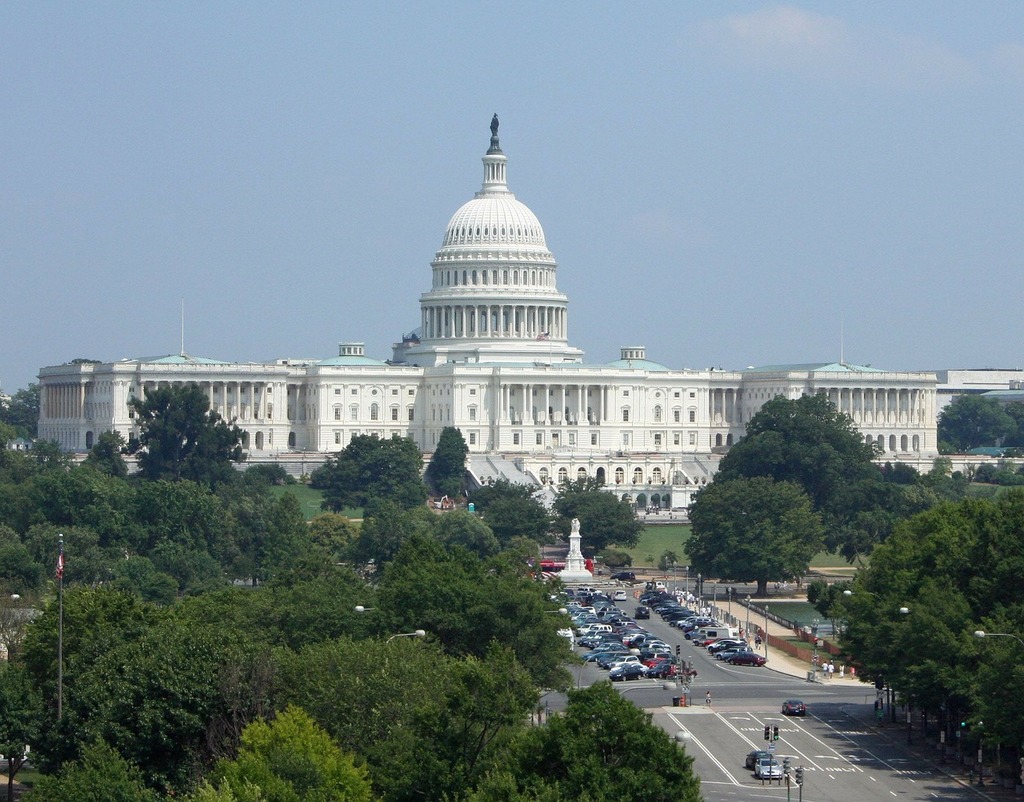
National Cannabis Industry Association joins more than 100 signatories in letter delivered to lawmakers today
WASHINGTON, D.C. – On Thursday, the National Cannabis Industry Association (NCIA) joined other trade organizations and policy groups, as well as dozens of cannabis businesses, in submitting a letter to members of Congress urging them to address the racially disparate harms caused by prohibition. The letter, which was signed by more than 100 businesses and organizations, calls for federal legislation to remove cannabis from the Controlled Substances Act, allow banks and other financial institutions to work with cannabis businesses and provide loans to people from marginalized communities who are trying to participate in the industry, and reform the federal tax code to remove the provision that imposes a discriminatory tax rate on cannabis businesses and creates a significant barrier for entry into the legal cannabis market.
The letter also calls for allocating federal funds for programs that would help provide restorative justice and promote equity in the cannabis industry. These include providing financial support for state programs that promote equity, allowing cannabis businesses to access Small Business Administration programs and benefits, expunging cannabis convictions and improving access to services that have been denied to people with cannabis-related criminal records, and reinvesting in the communities that have been most harmed by prohibition. The full text of the letter is available at http://www.DescheduleMarijuana.com.
“As representatives of the legal cannabis industry, we have a responsibility to help undo the harms caused by prohibition and ensure that people most impacted by failed federal policies have access to the opportunities being created every day in this market. We are pleased to join this distinguished group of business leaders and advocates in calling on Congress to incorporate these ideas into legislation,” said Aaron Smith, executive director of the National Cannabis Industry Association (NCIA). “Past Congresses have played a major role in marginalizing people of color through the war on cannabis, and it is the duty of current and future lawmakers to make up for this.”
“4Front is proud to stand with NCIA, the Minority Cannabis Business Association, and the other organizations that have signed this letter in support of federal cannabis policy reform that will not only help foster a more inclusive industry, but begin to address some of the harm done to communities disproportionately impacted by the War on Drugs,” said Kris Krane, co-founder and president of multi-state cannabis company 4Front Ventures and NCIA board member. “This is a cause that many of us have been pursuing for decades and it’s been tremendously gratifying to watch as the conversation has shifted from whether or not to legalize cannabis to how should we go about legalizing it.”
Last week, the House Judiciary Subcommittee on Crime, Terrorism, and Homeland Security held a historic hearing entitled “Marijuana Laws in America: Racial Justice and the Need for Reform” to begin a larger conversation in Congress about these problems and how to start fixing them.
In May, NCIA released a set of guidelines in conjunction with lawmakers and stakeholders called Increasing Equity in the Cannabis Industry: Six Achievable Goals for Policy Makers, which provides legislators with simple paths toward addressing many of the issues referenced in the letter.
The SAFE Banking Act, which would remedy the current cannabis banking situation discussed in the letter while increasing public safety and industry transparency, was approved by the House Financial Services Committee in March, and is expected to be voted on by the full House soon. The Senate Banking Committee will hold a hearing on a companion bill on Tuesday.
There are currently 47 states that allow cannabis in some form. Thirty-three states and several territories have comprehensive medical cannabis laws, and 11 states as well as the District of Columbia and the territories of Guam and CNMI have made cannabis legal for adults.
###
House Subcommittee Holds Groundbreaking Hearing on Ending Marijuana Prohibition and Impact on Racial Justice
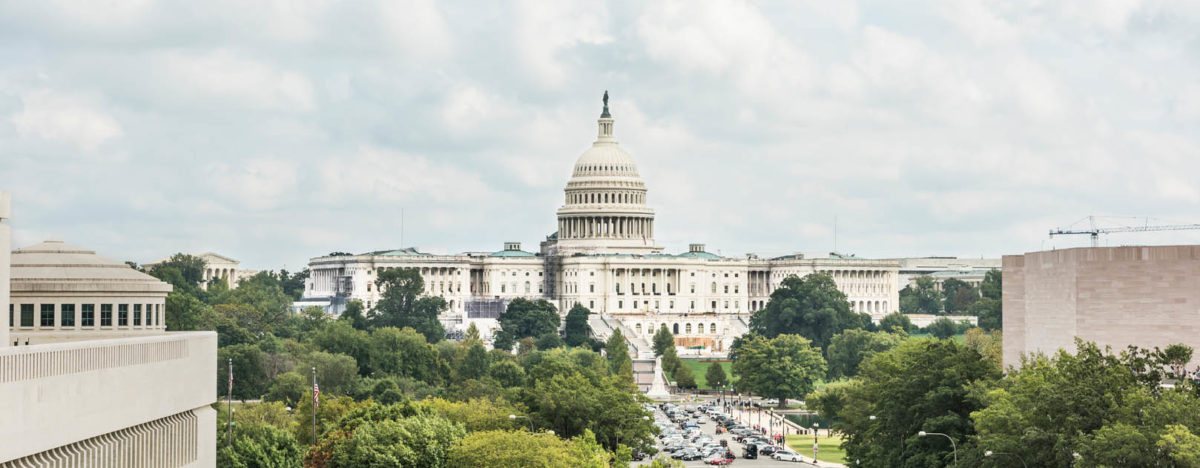
Hearing comes just weeks after House approves amendment to prevent federal interference in state cannabis laws; casts spotlight on disproportionate harms caused by current federal policies
WASHINGTON, D.C. – On Wednesday, House lawmakers for the first time held a hearing to address the disproportionate ways in which marijuana prohibition has negatively impacted people of color and marginalized communities. The hearing, entitled “Marijuana Laws in America: Racial Justice and the Need for Reform,” was called by the House Judiciary Subcommittee on Crime, Terrorism, and Homeland Security and exclusively featured testimony from witnesses in favor of sweeping cannabis policy reforms.
“It is imperative that we recognize the disparate and ongoing impact of marijuana prohibition on people of color and the barriers it creates for them to take part in the burgeoning legal cannabis market,” said Aaron Smith, executive director of the National Cannabis Industry Association (NCIA). “Congress should quickly move toward policies that allow legitimate businesses to supplant the illicit market and promote racial equity in the cannabis industry. Removing cannabis from the Controlled Substances Act is a cornerstone of that process.”
Written testimony from NCIA was submitted at the hearing by Rep. Steve Cohen (D-TN), a long time supporter of cannabis policy reform.
The hearing took place following a record number of hearings on cannabis policy reform legislation in the current congressional session, including on improving cannabis industry access to banking services with the SAFE Banking Act and allowing cannabis businesses to access Small Business Administration loans and programs with the Ensuring Safe Capital Access for All Small Businesses Act of 2019. In June, the House approved a spending amendment that would prevent the federal government from interfering in state cannabis programs or targeting businesses and individuals in compliance with state laws.
“Two thirds of all the states have now adopted legalization or medical cannabis policies and it’s time for Congress to finally address the conflicts between state and federal law,” said Steve Hawkins, executive director of the Marijuana Policy Project, a political organization that has played a central role in enacting over half of these state-level policies and joins NCIA in supporting de-scheduling cannabis. “This hearing, which recognizes the racist effects of prohibition, is a positive step forward and we hope it serves as a starting point for real legislative action this year.”
A Gallup poll released in October reported that 66% of Americans support making cannabis legal, including a majority of Republicans. A Quinnipiac poll from April 2018 showed that 74% of voters support legislation protecting states with legal cannabis programs from federal interference.
“Advocates have incredible momentum right now in Congress, and we should use this opportunity to explore and promote the farthest-reaching reforms possible,” continued Smith. “The country is ready to end prohibition, and all options should be on the table as to how we can do so in ways that will help repair the harms caused by these disastrous policies.”
There are currently 47 states that allow cannabis in some form. Thirty-three states and several territories have comprehensive medical cannabis laws, and 11 states as well as the District of Columbia and the territories of Guam and CNMI have made cannabis legal for adults.
###
House Committee Chair Introduces Legislation Allowing Legal Cannabis Industry to Access Small Business Administration Programs

FOR IMMEDIATE RELEASE
Friday, June 28, 2019
CONTACT:
Aaron Smith, National Cannabis Industry Association
303-569-6888, Aaron@TheCannabisIndustry.org
Bill would end federal prohibition and help level the playing field for small businesses
WASHINGTON, D.C. – On Thursday, Chairwoman of the House Committee on Small Business Rep. Nydia M. Velazquez (D-NY) introduced the Ensuring Safe Capital Access for All Small Businesses Act of 2019. This legislation would remove cannabis from the Controlled Substances Act and prohibit the Small Business Administration (SBA) from declining to provide a loan guarantee under the 7(a) Loan Guaranty Program, the Disaster Assistance Program, Microloan program, or the 504/Certified Development Company program to a cannabis related legitimate business or service provider.
This comes just a week after the House Committee on Small Business held a hearing entitled “Unlocked Potential? Small Businesses in the Cannabis Industry” to explore the opportunities for small businesses and entrepreneurs in legal cannabis markets, as well as the obstacles those businesses face when entering or operating in the emerging industry.
“State cannabis programs are successfully replacing criminal enterprises with tightly-regulated, responsible businesses but it’s increasingly difficult for smaller firms to compete in the legal industry without access to the essential Small Business Administration programs that other industries take for granted,” said Aaron Smith, executive director of the National Cannabis Industry Association (NCIA). “By improving access to capital, this legislation will also help level the playing field for entrepreneurs from communities of color and others disproportionately impacted by the failed policies of prohibition seeking to enter the legal cannabis industry.”
The Small Business Administration’s capital access programs are designed to provide financial assistance in the form of loans and loan guarantees to small businesses who cannot affordably access capital elsewhere. Small businesses in states with legal cannabis, however, are currently struggling with conflicting legal guidance coming from their home states and the federal government. In addition, because SBA’s loan products are generally more successful at reaching traditionally underserved business than conventional lending, it is also a measure aimed at ensuring minority, women, and veteran entrepreneurs in the legitimate cannabis industry are able to fairly and affordably access capital.
There are currently 47 states that allow cannabis in some form. Thirty-three states and several territories have effective medical cannabis laws, and 11 states as well as the District of Columbia and the territories of Guam and CNMI have made cannabis legal for adults.
###
The National Cannabis Industry Association (NCIA) is the largest cannabis trade association in the U.S. and the only organization broadly representing cannabis-related businesses at the national level. NCIA promotes the growth of a responsible and legitimate cannabis industry and works toward a favorable social, economic, and legal environment for that industry in the United States.
Historic Legislation Paving the Way for Legal Interstate Cannabis Commerce Introduced in Congress

FOR IMMEDIATE RELEASE
Thursday, June 27, 2019
CONTACT:
Aaron Smith, National Cannabis Industry Association
303-569-6888, Aaron@TheCannabisIndustry.org
Historic Legislation Paving the Way for Legal Interstate Cannabis Commerce Introduced in Congress
National Cannabis Industry Association presses for federal protections as Oregon becomes first state to enact cannabis export bill
WASHINGTON, D.C. – On Thursday, Sen. Ron Wyden (D-OR) and Rep. Earl Blumenauer (D-OR) introduced federal legislation that would protect interstate cannabis commerce from federal interference if the activity is in compliance with state laws and interstate compacts. The legislation also makes protections against federal interference in state medical cannabis programs permanent and expands those protections to apply to all state-legal cannabis programs, including those that allow for regulated sales to adults over age 21. Legal adult consumers and patients who travel between these states transporting limited amounts of cannabis would also be protected from federal prosecution.
“Like any other agricultural product, cannabis production should be able to take place in states with optimal climate conditions and exported to other legal markets across the country. This legislation is a bold step toward making that a reality,” said Aaron Smith, executive director of the National Cannabis Industry Association (NCIA). “This act would allow the cannabis industry to become more efficient and environmentally sustainable, as voters and state legislatures across the country continue to move away from the failed policies of prohibition.”
“As more and more states legalize cannabis, the gap between state and federal laws will only grow more confusing for both legal businesses and consumers,” said Sen. Wyden. “The solution is clear: the federal government needs to end its senseless and out of touch prohibition. As we fight for that ultimate goal, however, Congress can and should immediately act to protect the will of Oregonians and voters in other states from federal interference—and that should include interstate cannabis commerce.”
“The federal government is hopelessly out of touch with the American people on cannabis,” said Rep. Blumenauer. “Last week, the House agreed and passed my amendments to forbid the federal government from interfering with cannabis programs in the states, D.C. and tribal communities. This week, we are turning to a top priority for Oregonians—allowing for interstate sale of cannabis. It’s past time we protect the states, like Oregon, that have gotten it right.”
The State Cannabis Commerce Act of 2019 was introduced just days after Oregon Governor Kate Brown (D) signed groundbreaking bipartisan legislation that allows the state to enter into compacts to export cannabis to other states with legal marijuana programs, once the federal government allows it. The legislation would not affect those states which have yet to enact cannabis programs or choose not to enter into aninterstate compact.
“On behalf of the thousands of cannabis professionals that make up our diverse membership, we look forward to working with other states that are poised to follow Oregon’s lead by enacting interstate commerce legislation as well as with our allies in Congress to advance this much-needed federal reform,” continued Smith.
A Gallup poll released in October reported that 66% of Americans support making cannabis legal, including a majority of Republicans. A Quinnipiac poll from April 2018 showed that 74% of voters support legislation protecting states with legal cannabis programs from federal interference.
There are currently 47 states that allow cannabis in some form. Thirty-three states and several territories have comprehensive medical cannabis laws, and 11 states as well as the District of Columbia and the territories of Guam and CNMI have made cannabis legal for adults.
###
The National Cannabis Industry Association (NCIA) is the largest cannabis trade association in the U.S. and the only organization broadly representing cannabis-related businesses at the national level. NCIA promotes the growth of a responsible and legitimate cannabis industry and works toward a favorable social, economic, and legal environment for that industry in the United States.
House of Representatives Approves Historic Measure Halting Federal Interference in State Cannabis Laws

Appropriations amendments passed to prevent DOJ enforcement in states, territories, tribal lands with legal cannabis markets
WASHINGTON, D.C. – On Thursday, the House of Representatives voted in favor of an appropriations amendment that would prevent federal interference in legal cannabis programs. The amendment to the Commerce, Justice, Science, and Related Agencies (CJS) Appropriations Act of 2020, which passed by a vote of 267-165, would prevent any federal funds from being used to target individuals and businesses that are in compliance with state, territorial, or tribal cannabis laws.
Protections for state medical cannabis programs have been included in the federal budget since 2014. The amendment passed today was introduced by Rep. Earl Blumenauer (D-OR), Rep. Tom McClintock (R-CA), and Del. Eleanor Holmes Norton (D-DC) and would, for the first time, extend those protections to states and territories where cannabis is legal for adults. An additional amendment by Rep. Blumenauer would also prevent federal interference in tribal cannabis laws.
“This is without a doubt the biggest victory for federal cannabis policy reform to date, and a hopeful sign that the harmful policies of marijuana prohibition will soon be a relic of the past,” said Aaron Smith, executive director of the National Cannabis Industry Association (NCIA). “Interfering with successful, regulated cannabis programs is a tremendous waste of resources, and only serves to push the market back into the hands of criminals. The amendment approved today reflects a growing realization of these facts by lawmakers.”
A Gallup poll released in October reported that 66% of Americans support making cannabis legal, including a majority of Republicans. A Quinnipiac poll from April 2018 showed that 74% of voters support legislation protecting states with legal cannabis programs from federal interference.
After the overall spending package is passed in the House, companion legislation must be considered by the Senate, and the budget must be signed by the president before these provisions can take effect. Once enacted, the cannabis-related spending restrictions would be in effect through Fiscal Year 2020. The new budget must be approved by September 30 unless a continuing resolution is passed before then.
“The threat of federal prosecution has hung over the heads of responsible, law-abiding cannabis business owners for far too long,” continued Smith. “They deserve some legislative reassurance while Congress considers how best to permanently end prohibition.”
There are currently 47 states that allow cannabis in some form. Thirty-three states and several territories have comprehensive medical cannabis laws, and 10 states as well as the District of Columbia and the territories of Guam and CNMI have made cannabis legal for adults. In May, the Illinois state legislature approved a measure regulating the adult cannabis market, which the governor has pledged to sign. It will be the 11th state to make cannabis legal and the first to regulate the substance through its legislature.
House Committee Holds Hearing on Potential for Small Businesses in the Cannabis Industry

Committee on Small Business heard from experts about the need for access to loans and financial services available to other industries
WASHINGTON, D.C. – The House Committee on Small Business held a hearing today entitled “Unlocked Potential? Small Businesses in the Cannabis Industry” to explore the opportunities for small businesses and entrepreneurs in legal cannabis markets, as well as the obstacles those businesses face when entering or operating in the emerging industry.
“As more and more states take steps to bring cannabis to commerce, we are seeing small businesses at the forefront of this expanding industry,” said Rep. Nydia M. Velazquez (D-NY), chairwoman of the House Committee on Small Business. “As the only House Committee dedicated solely to the needs of small firms, it is important for us to be shedding light on the challenges these small entities face as well as the economic potential they offer… Despite growing economic opportunities around legal cannabis, factors like federal law enforcement, conflicting rules among the states, and our current banking regulations are hindering the ability for entrepreneurs and small businesses to fully engage in this new industry.”
The vast majority of financial institutions are unable to provide services to the cannabis industry, its employees, and ancillary businesses due to burdensome federal restrictions and fear of potential prosecution. The SAFE Banking Act, which would provide safe harbor for banks and other members of the financial sector to provide services including small business loans, was approved by the House Financial Services Committee in March. A full vote in the House is anticipated in the coming weeks.
“As a bank, we see the potential in this industry, as well as the challenges financial institutions face when working with cannabis businesses,” said Dana Chaves, director of specialty banking at First Federal Bank and chair of the National Cannabis Industry Association’s Banking Access Committee, who testified at the hearing. “Unfortunately, current federal policies not only create public safety and transparency issues – they also disproportionately harm small businesses. We are doing what we can and shouldering tremendous risk to help the cannabis industry, but we want to be able to provide a full range of financial services so that these small businesses can thrive in a safe environment, and we cannot do so without clear guidance from Congress.”
Cannabis businesses and the ancillary businesses that serve them are also ineligible for Small Business Administration (SBA) loans, but legislative avenues to address this and give priority status to businesses owned by women and people of color are being explored by lawmakers and stakeholders.
“Small businesses have been the backbone of the cannabis industry, but we need to make sure they can stay viable as laws change and the industry matures,” said Aaron Smith, executive director of the National Cannabis Industry Association (NCIA). “Unfortunately, our federal laws are hurting small businesses and marginalized communities the most. We look forward to continuing our work with Congress to address this disparity and ensure that the people who have been most harmed by prohibition can benefit proportionately from the opportunities created by legal cannabis markets.”
There are currently 47 states that allow cannabis in some form. Thirty-three states and several territories have effective medical cannabis laws, and 10 states as well as the District of Columbia and the territories of Guam and CNMI have made cannabis legal for adults. In May, the Illinois state legislature approved a measure regulating the adult cannabis market, which the governor has pledged to sign. It will be the 11th state to make cannabis legal and the first to regulate the substance through its legislature.
Illinois Lawmakers Move to Regulate Cannabis for Adult Use
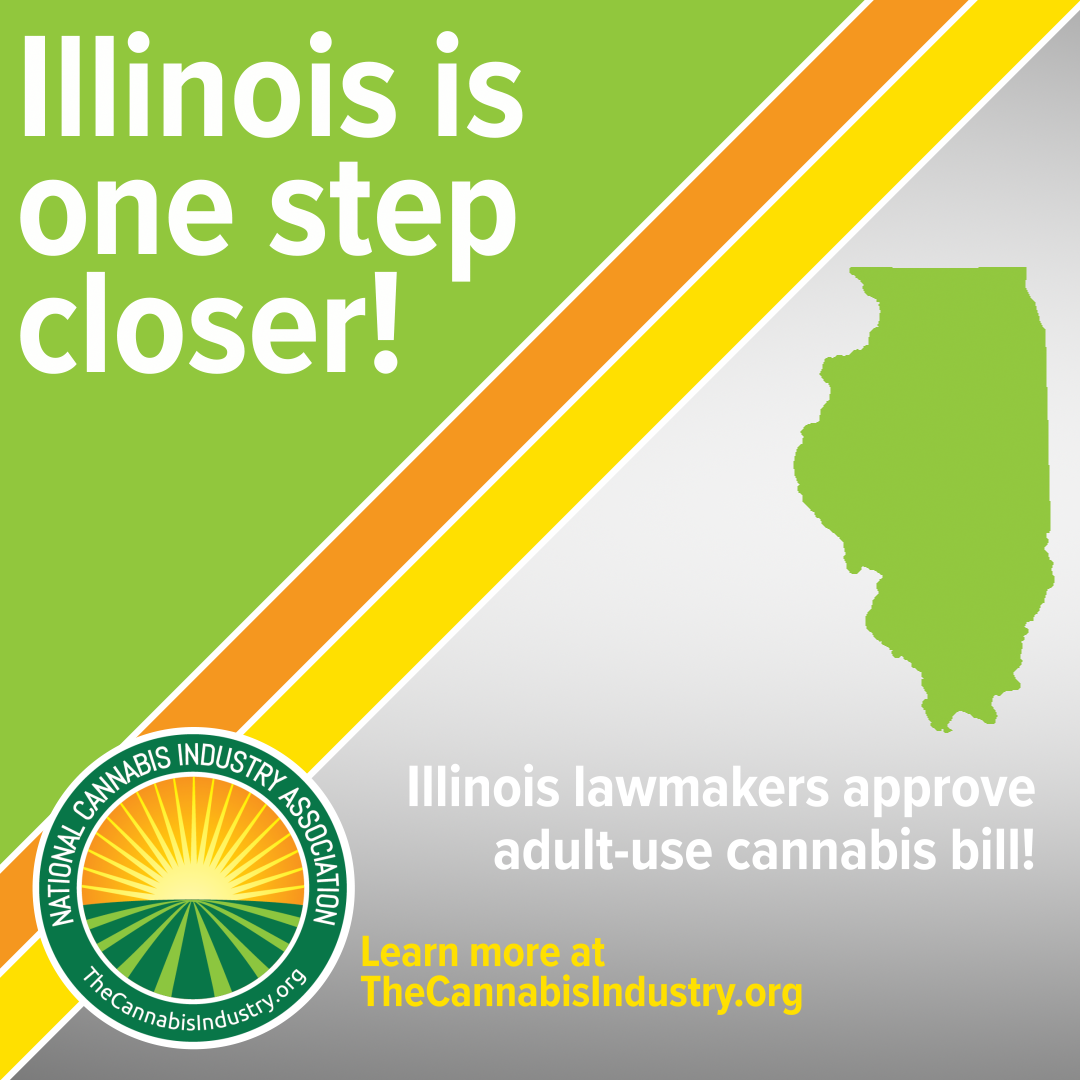
State would be 11th to make cannabis legal for adults, first to regulate legal market through its legislature
SPRINGFIELD, Ill. – Illinois is likely to become the 11th state to make cannabis legal for adults after the state House of Representatives passed the Cannabis Regulation and Tax Act on Friday. The Senate approved the bill on Wednesday. Illinois is the first state to pass legislation regulating the adult-use cannabis market through its legislature. Governor J.B. Pritzker has pledged to sign the bill into law.
“Illinois lawmakers made history today by being the first state legislature to not only end the madness of prohibition but also by creating a regulated market for the production and sale of cannabis products to adults,” said Aaron Smith, executive director of the National Cannabis Industry Association (NCIA). “This bill will generate revenue, create jobs, improve public safety by replacing criminal markets with legitimate businesses, and takes important steps to help marginalized communities access business opportunities in the newly-legal industry.”
The Cannabis Regulation and Tax Act, which would take effect on January 1 of next year, makes it legal for adults age 21 and older to possess 30 grams or less of raw cannabis, five grams of cannabis concentrate, and cannabis infused products with up to 500 mg of THC, as well as to purchase those amounts from licensed retail establishments. The bill requires the state to establish a regulatory structure to license and oversee dispensaries, processors, craft growers, cultivation centers, and transporters, and establishes specific tax rates for different types of cannabis products in addition to the state sales taxes and a local tax of up to 3.5%. Registered medical cannabis patients would be able to cultivate up to five plants in their residences, but this allowance does not extend to all adults.
The legislation also includes several provisions to help repair some of the harm caused by racially disparate enforcement of marijuana laws and to ensure equity and diversity in the legal cannabis industry. All convictions for possession of amounts of cannabis made legal under the bill will be automatically expunged, with opportunities to appeal for expungement of convictions for larger amounts. Business applicants who have been harmed by prohibition or have ties to communities that have been disproportionately impacted will receive additional points in the licensing process, and the legislation calls for the creation of local bodies to guide the reinvestment of cannabis revenue in those communities. The bill also creates a fund to provide financial assistance to small business applicants as well as pilot training programs throughout the state to prepare people for jobs in the cannabis industry.
“It is fitting that the Land of Lincoln is moving forward with such extensive measures to reverse the damage done to people of color and low-income communities by the government’s senseless war on cannabis consumers,” continued Smith. “We cannot continue to pursue legalization without considering restorative justice, and Illinois is definitely starting on the right foot in this regard.”
There are currently 10 states, as well as the District of Columbia and the territory of CNMI, in which cannabis is legal for adults. All except D.C. and Vermont allow regulated production and sales, and Washington is the only state that does not permit limited home cultivation.
Experts and Industry Leaders Urge FDA to Reform Policies on Cannabis-Derived Compounds

National Cannabis Industry Association presents evidence on behalf of broad coalition to address concerns and suggest regulatory guidelines for CBD and other cannabinoids
WASHINGTON, D.C. – The National Cannabis Industry Association (NCIA) presented information today at a public hearing of the U.S. Food & Drug Administration (FDA) on products containing cannabis and cannabis-derived compounds, including cannabidiol (CBD).
NCIA Policy Director Andrew Kline spoke at the hearing and presented extensive written testimony compiled by a coalition of more than 100 CBD/hemp entrepreneurs, scientists, medical professionals, and food and drug lawyers. The coalition addresses medical benefits, health and safety concerns, manufacturing and product quality, and the need for a robust regulatory structure with guidance for product testing, marketing, and labeling. The testimony also discusses the potential economic benefits of a well-regulated CBD and hemp industry, as well as the problems created by a lack of access to financial services in the industry due to federal banking restrictions.
“There is no higher calling in government service than public safety – and we applaud FDA’s efforts to make certain that consumers are safe,” said Kline. “The bottom line is this – an overwhelming preponderance of evidence indicates that cannabis and cannabis-derived compounds present minimal health and safety concerns.”
The 2018 Farm Bill created an exemption in the Controlled Substances Act for hemp-derived CBD which has recently fueled unprecedented expansion in the CBD consumer market, but FDA policy prevents the substance and other cannabinoids from being used as an additive in food and other products under federal law.
“Time is of the essence,” continued Kline. “Hemp-derived CBD products are in very high consumer demand and the industry is eagerly awaiting FDA’s regulatory framework for these products. We strongly recommend that FDA act quickly to clarify the regulatory environment because there is significant confusion in the market.”
There are currently 47 states that have made cannabis- or hemp-derived compounds legal in some form.
Members of Congress and Cannabis Business Leaders Promote Equity in the Industry

Lawmakers join industry representatives to discuss ways policy makers can ensure diversity and help address harms caused by discriminatory enforcement of marijuana laws
WASHINGTON, D.C. – On Thursday, the National Cannabis Industry Association (NCIA) and the Minority Cannabis Industry Association (MCBA) were joined by representatives of the Congressional Black and Hispanic Caucuses for a briefing on ways that policy makers at the federal, state, and local levels can help ensure that the legal cannabis industry is more diverse and inclusive going forward, and how steadily evolving laws on cannabis can be crafted to repair some of the harms caused by the racially and economically disparate ways in which marijuana laws have been enforced nationally.
Participants discussed NCIA’s new report, “Increasing Equity in the Cannabis Industry: Six Achievable Goals for Policy Makers,” which was officially released at the event, as well as MCBA’s Model Municipal Social Equity Ordinance which was originally released earlier this year.
“As more and more states move to legalize cannabis, including California, we must ensure that federal laws respect the choice of voters across the country,” said Rep. Carbajal (D-CA). “Congress must provide certainty and equity to the cannabis industry, including allowing them to access our banking system like other small businesses. The Central Coast is playing a significant part of the emerging legal cannabis industry and it is important that we remove the federal barriers handicapping this growing industry.”
“MCBA continues to work collaboratively with industry, community and policy makers to ensure equitable cannabis policy,” said Shanita Penny, president of MCBA. “Equitable cannabis policy addresses the needs and concerns of stakeholders often forgotten – the communities devastated by the failed War on Drugs. Our Model Municipal Social Equity Ordinance is a tool that cities throughout the country are using already and with their feedback we’ve begun working on the next version as we navigate the nation’s fastest-growing industry.”
“As industry advocates, we have a responsibility to ensure that the cannabis industry benefits the people who have been most harmed by prohibition,” said Aaron Smith, executive director of NCIA. “We are proud of the work we have been doing with lawmakers and business leaders to bring this issue to the forefront, make this industry accessible to everyone, and develop the practices and resources we need to start undoing the decades of damage that our outdated marijuana policies have wreaked on people of color and poor communities.”
This event took place in conjunction with NCIA’s 9th Annual Cannabis Industry Lobby Days, which saw nearly 300 cannabis business leaders from around the country meet with hundreds of members of Congress this week to promote sensible cannabis policies, including access to banking, fair taxation, and making cannabis legal in a way that addresses the harms caused by prohibition.
Cannabis Business Leaders in Washington Next Week to Advocate for Federal Reform
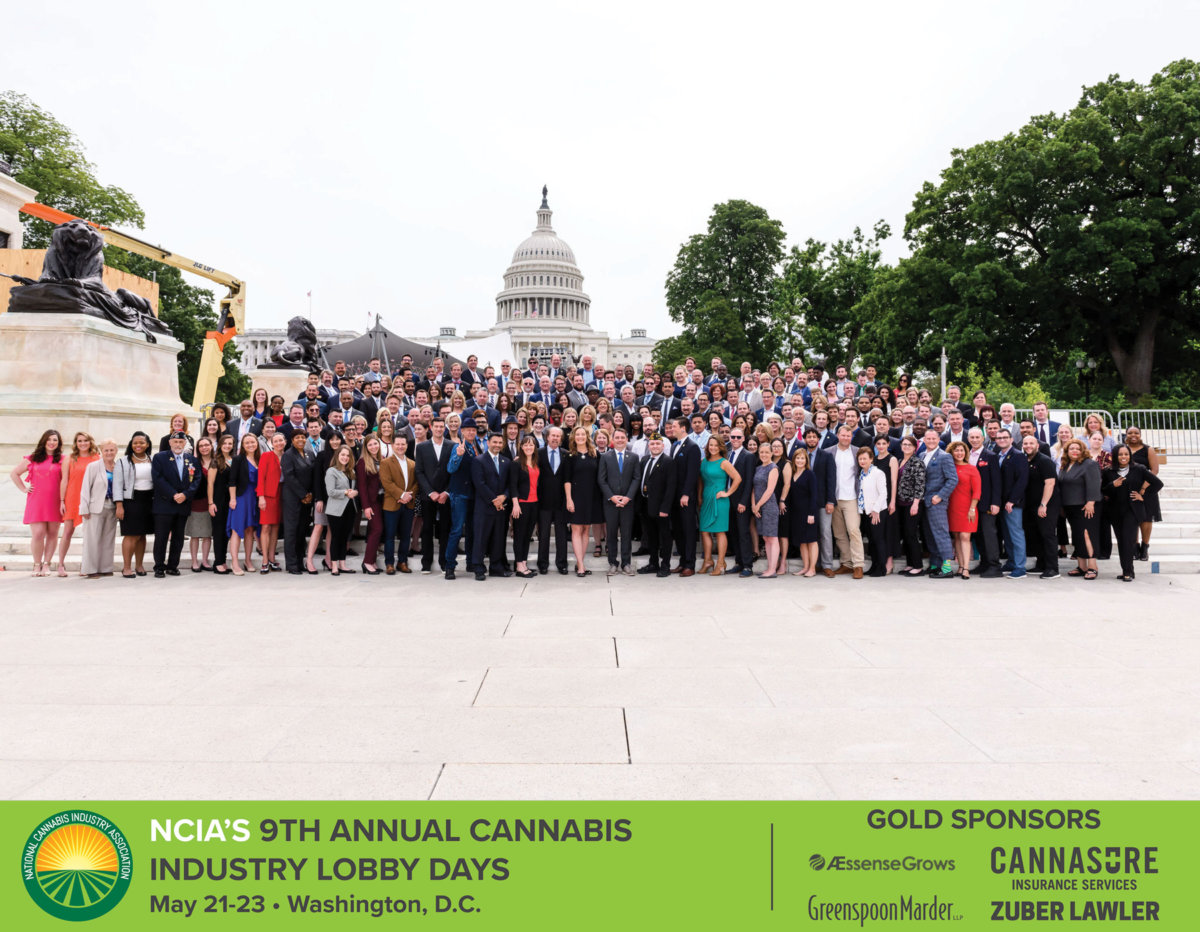
Hundreds of industry leaders will meet with lawmakers to discuss access to banking, social equity, fair taxation, and more
WASHINGTON, D.C. – Next week, nearly 300 cannabis industry leaders from across the country will travel to Washington, D.C. for the National Cannabis Industry Association’s 9th Annual Cannabis Industry Lobby Days. Over the course of the three-day event, citizen lobby meetings will be held with Congressional offices to discuss the positive economic and social impact that regulation has already had on states with modern cannabis laws and advocate for the fair treatment of the legal businesses created by those laws.
“We are extremely proud to be bringing so many of our members to the nation’s capital to advocate for cannabis policy reform for the ninth year in a row,” said Aaron Smith, executive director of the National Cannabis Industry Association (NCIA). “Now more than ever, it is important for lawmakers to see that our outdated federal policies are having a negative impact on real people, many of whom are carefully and conscientiously trying to replace the illicit market with regulated, responsible businesses.”
On Tuesday, May 21, NCIA will host a breakfast and legislative briefing on H.R. 1595: The Secure and Fair Enforcement (SAFE) Banking Act. This legislation, which currently has 180 cosponsors in the House and was approved in a bipartisan vote in the House Financial Services Committee earlier this year, would protect financial institutions which want to work with cannabis businesses that are in compliance with state laws. Speakers include: bill sponsors Rep. Denny Heck (D-WA) and Rep. Ed Perlmutter (D-CO); Michelle Rutter, government relations manager for NCIA; Tanner Daniel, vice president of the American Banking Association; Becky Dansky, executive director of the Safe and Responsible Banking Alliance; and Gail Rand, chief financial officer for ForwardGro, the first of 15 companies licensed to cultivate cannabis in Maryland.
The SAFE Banking Act briefing will take place in Room 1539 of the Longworth House Office Building at 10:00 a.m. EST on Tuesday.
On Thursday, May 23, NCIA will be joined by representatives of the Congressional Black Caucus, the Congressional Hispanic Caucus, and the Minority Cannabis Business Association (MCBA) for a breakfast and briefing on the rollout of NCIA’s new report, “Increasing Equity in the Cannabis Industry: Six Achievable Goals for Policy Makers,” and MCBA’s Model Municipal Social Equity Ordinance. Speakers include: Rep. Barbara Lee (D-CA); Rep. Ruben Gallego (D-AZ); Rep. Lou Correa (D-CA); Rep. Salud Carbajal (D-CA); Shanita Penny, president of MCBA; and Khurshid Khoja, principal of Greenbridge Corporate Counsel, board vice-chair of NCIA, and co-chair of MCBA’s Policy Committee.
The industry equity briefing will take place in Room 2060 of the Rayburn House Office Building at 8:30 a.m. EST on Thursday.
Meetings between cannabis business leaders and congressional offices will take place throughout the day on both Wednesday, May 22 and Thursday, May 23. Meetings are generally closed to the media. For other coverage options or to arrange interviews with attendees or NCIA staff, please contact media@thecannabisindustry.org.
Cannabis is legal for adults in ten states, Guam, CNMI, and the District of Columbia, and 33 states as well as several territories have comprehensive medical cannabis laws. The substance is legal in some form in 47 states.
Senate Cannabis Banking Reform Bill Reintroduced with Bipartisan Support

SAFE Banking Act would protect financial institutions working with the legal cannabis industry
WASHINGTON, D.C. – The Secure and Fair Enforcement (SAFE) Banking Act was introduced in the Senate on Thursday by Sens. Jeff Merkley (D-OR) and Cory Gardner (R-CO), along with 20 cosponsors. The bipartisan legislation, which was introduced in the House last month, would protect banks and other financial institutions from prosecution and ease restrictions for providing services to cannabis businesses that are in compliance with state laws.
The House companion bill, H.R. 1595, was introduced in February by Reps. Ed Perlmutter (D-CO), Denny Heck (D-WA), Steve Stivers (R-OH), and Warren Davidson (R-OH). The bill was approved with bipartisan support in the House Financial Services Committee in March and currently has 158 cosponsors.
“Lack of access to financial services is creating public safety problems for the rapidly growing legal cannabis industry, as well as interfering with transparency and access to capital for small businesses,” said Aaron Smith, executive director of the National Cannabis Industry Association. “The Senate now has the opportunity to keep up the momentum that the SAFE Banking Act has in the House and address this important issue.”
“Forcing legal businesses to operate in all-cash is dangerous for our communities,” said Sen. Merkley. “It’s absurd that cannabis business owners in Oregon have to shuttle around gym bags full of cash to take care of their taxes or pay their employees. Operating in cash is an invitation to robbery, money laundering, and organized crime. This is a public safety issue, and I hope that this will be the Congress when we build a bipartisan consensus to put this common-sense fix into law.”
The SAFE Banking Act would prevent federal banking regulators from sanctioning banks for working with cannabis related businesses that are obeying state laws or halting their services, taking action on loans made to those businesses, or limiting a depository institution’s access to the Deposit Insurance Fund. The bill would also protect ancillary businesses that work with the cannabis industry from being charged with money laundering and other financial crimes, and requires the Financial Institution Examination Council to develop guidance to help credit unions and banks understand how to lawfully serve cannabis businesses.
On Tuesday, Treasury Secretary Steven Mnuchin called on Congress to address the cannabis banking issue, citing the inability of financial regulators to solve the problems caused by the lack of access to banking services.
Cannabis is legal for adults in ten states, Guam, and the District of Columbia, and 33 states as well as several territories have comprehensive medical cannabis laws. The substance is legal in some form in 47 states.
###
National Cannabis Industry Association Hires Andrew Kline to Lead Public Policy

Former vice presidential advisor, federal prosecutor, and public policy expert will direct the organization’s policy efforts
WASHINGTON, D.C. – The National Cannabis Industry Association (NCIA), the nation’s largest and most representative trade group for the legal cannabis industry, has hired Andrew Kline for the newly created position of director of public policy. In addition to leading federal and state policy efforts on behalf of NCIA’s nearly 2,000 members, Kline will also lead NCIA’s Policy Council, an elite group of NCIA members striving to influence federal and state public policy.
“I’m pleased to announce that Andrew Kline is joining the NCIA team as director of public policy,” said Aaron Smith, executive director of the National Cannabis Industry Association. “In this new role, Andrew will lead our substantive public policy efforts, striving to prepare, protect, and expand the legal cannabis industry. As this cutting edge industry continues to grow, Andrew will help NCIA grow along with it as we support our members, promote sensible policies, and encourage our core values of corporate responsibility and inclusivity in the industry.”
Kline most recently served as president of the National Association of Cannabis Businesses (NACB), the first self-regulatory organization for the legal cannabis industry. At the NACB, Andrew led the creation of national standards for the state-legal cannabis industry, oversaw its standards governance board, and led day-to-day operations and strategic planning.
“I could not be more excited to join NCIA – the premier national cannabis trade association – at this critical time for the industry,” said Andrew Kline. “Cannabis policy will be at the forefront, as entrepreneurs continue to navigate the tension between state and federal law. We will elevate the voice that our members have in the national debate and make certain that their business interests are protected. I’m particularly eager to serve as a resource to our members, the Policy Council, and NCIA lobbyists on Capitol Hill as we develop public policies that create value. And I’m enthusiastic about collaborating with the broader cannabis community to develop policies that support state-legal cannabis businesses.”
Kline has an extensive background in public policy, law enforcement, and coalition creation/management. He is renowned for his ability to create solutions to complex domestic and global public policy issues that appeal to both private and public constituencies.
Prior to joining the NACB, Kline was special counsel for the Federal Communications Commission’s (FCC) Enforcement Bureau where he was responsible for high profile investigations and public policy negotiations affecting the telecommunications, internet, cable, and satellite industries. He also served as chief of staff and senior advisor for Intellectual Property Enforcement in the Executive Office of the President in the Obama Administration where he led public-private partnerships and public policy efforts to address online trademark theft, copyright infringement, consumer safety, national security, and the protection of domestic business interests globally.
Kline previously worked as executive-in-residence at American University’s School of Public Affairs where he taught graduate-level courses in public policy and law. He also served as senior policy advisor to Joe Biden during his time as a senator and vice president, and spent fourteen years as a federal prosecutor. He is admitted to the Bar in California, Colorado, and the District of Columbia, and holds an MPA from Harvard University’s Kennedy School of Government.
###
STATES Act to End Cannabis Prohibition Reintroduced in Congress
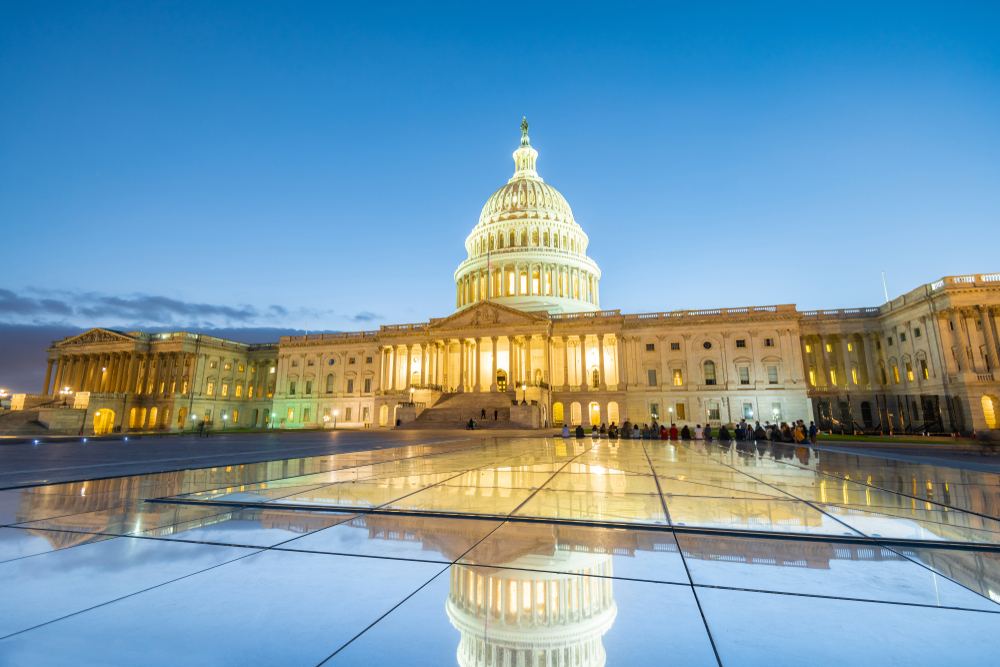
Bipartisan legislation would protect legal businesses in states that have regulated cannabis
WASHINGTON, D.C. – The introduction of legislation in Congress that would allow states to determine their own cannabis policies without fear of federal interference was announced in a bicameral press conference at the Capitol on Thursday featuring bill sponsors and members of the congressional Cannabis Caucus. The Strengthening the Tenth Amendment Through Entrusting States (STATES) Act of 2019 is being introduced by Sens. Cory Gardner (R-CO) and Elizabeth Warren (D-MA) in the Senate and Reps. Earl Blumenauer (D-OR) and Dave Joyce (R-OH) in the House.
“The current federal policy interferes with the ability of states to implement their own cannabis laws, and the resulting system has stifled important medical research, hurt legitimate businesses and diverted critical law enforcement resources needed elsewhere,” said Rep. Dave Joyce. “It’s past time for Congress to clarify cannabis policy on the federal level and ensure states are free to make their own decisions in the best interest of their constituents. The STATES Act does just that by respecting the will of the states that have legalized cannabis in some form and allowing them to implement their own policies without fear of repercussion from the federal government.”
The bipartisan legislation would exempt individuals and businesses in compliance with state cannabis laws and a set of new federal guidelines from certain provisions of the federal Controlled Substances Act. The legislation does not remove federal criminal penalties for illicit marijuana behavior but would end federal interference with state and tribal laws that have regulated the production, sale, and personal consumption of cannabis for medical patients and adults age 21 and older. The bill also mandates the Government Accountability Office to study the potential impact of cannabis legalization on traffic safety, and removes a provision from last year’s bill regarding hemp that was addressed in the 2018 Farm Bill.
“The STATES Act is being reintroduced at a key moment when bipartisan support for cannabis policy reform is at historic levels in both chambers of Congress and among the general public,” said Aaron Smith, executive director of the National Cannabis Industry Association. “Regulating cannabis is successfully replacing illicit markets with licensed businesses in a growing number of states across the country. This legislation will simply allow those state regulatory programs to succeed without federal interference.”
During his confirmation hearings earlier this year, Attorney General William Barr stated verbally and in writing that he would not direct the Dept. of Justice to target cannabis businesses or individuals that are in compliance with state cannabis laws, but individual federal prosecutors are still able to do so legally at their own discretion, creating uncertainty at the state level. The STATES Act would codify the policy reiterated by Barr into law.
In June, President Trump said he would probably support the legislation if it came to his desk for approval, and noted several times during his campaign that he was in favor of leaving cannabis issues up to the states.
There are currently several cannabis reform bills being considered in Congress, including the SAFE Banking Act, which would provide safe harbor for financial institutions that choose to work with cannabis businesses and which was approved by the House Financial Services Committee in a bipartisan vote last week.
Cannabis is legal for adults in ten states and the District of Columbia, and 33 states as well as several territories have comprehensive medical cannabis laws. The substance is legal in some form in 47 states, and dozens of states are considering cannabis policy reform legislation this year. This week, the governor of Guam signed a legalization bill into law.
Cannabis Banking Reform Bill Approved by House Financial Services Committee
SAFE Banking Act would provide safe harbor for financial institutions who work with the legal cannabis industry; suggested amendments would protect new banks and insurers, study impact on diversity
WASHINGTON, D.C. – On Thursday morning, the House Financial Services Committee approved an updated version of the Secure and Fair Enforcement (SAFE) Banking Act, which would provide safe harbor and guidance to financial institutions that wish to work with legal cannabis businesses, in a vote of 45-15. This is the first markup and committee approval of a cannabis-related bill in this congressional session. The legislation will now go back to the House for further consideration.
Suggested amendments include a mandate for the Government Accountability Office to study the impact of the bill on access to financial services and the cannabis industry for women and people of color, as well as extending protections to insurers and new financial institutions as they form.
“The SAFE Banking Act would go a long way toward improving safety, transparency, access, and justice in the cannabis industry,” said Aaron Smith, executive director of the National Cannabis Industry Association. “The amendments agreed upon in committee should solidify the already overwhelming support for this legislation in the House. The cannabis and financial services industries have been waiting for clarification and protection for far too long, and we are confident the House would approve this bill if allowed to vote on it without further delay.”
The bill was originally introduced by Reps. Ed Perlmutter (D-CO), Denny Heck (D-WA), Steve Stivers (R-OH), and Warren Davidson (R-OH). It currently has 152 congressional cosponsors, more than any cannabis reform legislation.
The SAFE Banking Act would prevent federal banking regulators from punishing banks for working with cannabis related businesses that are obeying state laws or halting their services, taking action on loans made to those businesses, or limiting a depository institution’s access to the Deposit Insurance Fund. The bill would also protect ancillary businesses that work with the cannabis industry from being charged with money laundering and other financial crimes, and requires the Financial Institution Examination Council to develop guidance to help credit unions and banks understand how to lawfully serve cannabis businesses.
On Monday, the American Bankers Association and the Credit Union National Association sent a letter to Congress urging lawmakers to support the SAFE Banking Act, and an article published in the Wall Street Journal on Tuesday explored the wide variety of businesses that support cannabis banking reform.
Cannabis is legal for adults in ten states and the District of Columbia, and 33 states as well as several territories have comprehensive medical cannabis laws. The substance is legal in some form in 47 states, and dozens of states are considering cannabis policy reform legislation this year.
Lawmakers Introduce Bill to Resolve Legal Cannabis Industry’s Banking Woes

SAFE Banking Act would provide safe harbor for financial institutions who work with legal cannabis businesses, their employees, and ancillary industries
WASHINGTON, D.C. – A bill that would make it easier for financial institutions to work with the cannabis industry was introduced today and is expected to be considered in Congress this session. The Secure and Fair Enforcement (SAFE) Banking Act, sponsored by Reps. Ed Perlmutter (D-CO), Denny Heck (D-WA), Steve Stivers (R-OH), and Warren Davidson (R-OH) in the House with 106 cosponsors, would provide much-needed clarity and protections for banks that choose to work with cannabis businesses that are in compliance with state laws.
“Members of the legal cannabis industry are already one of the most unfairly taxed and heavily regulated groups in the country. They shouldn’t have to deal with the additional costs and safety concerns that are caused by preventing banks from working with them,” said Aaron Smith, executive director of the National Cannabis Industry Association. “The SAFE Banking Act is a narrowly tailored and absolutely necessary step to address an issue that is getting increasingly urgent as more and more states decide to sensibly regulate cannabis.”
“The majority of American voters have spoken and it’s happening whether we act or not. The SAFE Banking Act is focused solely on taking cash off the streets and making our communities safer,” said Rep. Perlmutter. “Only Congress can provide the certainty financial institutions need to start banking legitimate marijuana businesses – just like any other legal business – and reduce risks for employees, businesses and communities across the country.”
The SAFE Banking Act would prevent federal banking regulators from punishing banks for working with cannabis related businesses that are obeying state laws or halting their services, taking action on loans made to those businesses, or limiting a depository institution’s access to the Deposit Insurance Fund. The bill would also protect ancillary businesses that work with the cannabis industry from being charged with money laundering and other financial crimes, and requires the Financial Institution Examination Council to develop guidance to help credit unions and banks understand how to lawfully serve cannabis businesses.
Draft legislation of the SAFE Banking Act received a historic hearing in the House Consumer Protection and Financial Institutions Subcommittee last month, which heard supportive testimony from the California state treasurer, law enforcement, representatives of credit unions and banks, and a licensed medical cannabis producer and retailer from the District of Columbia. NCIA submitted written testimony along with the personal stories about the burdens and safety concerns created by the current banking situation from nearly 100 cannabis industry professionals.
The American Bankers Association recently voiced their support for this legislation, reporting last month that financial industry surveys show three quarters of banks have had to close a cannabis business account because of the current restrictions, and that support for clarification from Congress on this issue is nearly unanimous, even among banks in non-legal states that have no interest in directly serving the cannabis industry. And last week, Federal Reserve Chairman Jerome Powell cited the need for more clarity about cannabis banking in a Senate Finance Committee hearing. Last year, this legislation had 20 cosponsors in the Senate and 95 cosponsors in the House.
Cannabis is legal for adults in ten states and the District of Columbia, and 33 states as well as several territories have comprehensive medical cannabis laws. The substance is legal in some form in 47 states. In February, legislative committees in four states approved cannabis legalization bills, and many more states are expected to consider the issue this year.
Cannabis Decriminalization and Research Bills Introduced
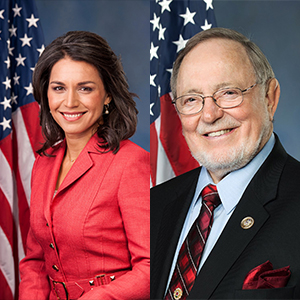
Legislation would end federal prohibition and mandate study on the effects of state cannabis programs
WASHINGTON, D.C. – A pair of bills was introduced today by Rep. Tulsi Gabbard (D-HI) and Rep. Don Young (R-AK), adding to a steadily increasing slate of cannabis-related legislation being submitted to Congress for consideration this year. The Ending Federal Marijuana Prohibition Act would remove cannabis from the Controlled Substances Act and effectively allow states to determine their own cannabis policies and put an end to federal cannabis prosecutions. The Marijuana Data Collection Act would require the National Academy of Sciences to study and report on the status of state cannabis programs and their impact on public health, safety, and the economy.
“We are grateful to Representatives Gabbard and Young for adding to the bipartisan chorus of voices in Congress calling for cannabis policy reform by introducing these bills,” said Aaron Smith, executive director of the National Cannabis Industry Association. “States should be able to make their own cannabis laws without fear of federal interference, and lawmakers deserve to see comprehensive research on what an increasing number of states are already proving – that regulating cannabis works.”
“We look forward to a study conducted by an independent federal agency that isn’t invested in continuing marijuana prohibition,” Smith continued. “Lawmakers and regulators at the state and federal level will benefit from a study that takes a serious look at the effects of making cannabis legal for medical and adult use. There is already plenty of evidence showing that regulation is working in the states, but we need to look at the potential public health and economic impacts of further reforms, and the real costs of continuing to ban a substance that has proven medical benefits and whose prohibition continues to cause massive societal harms.”
Both bills are reintroductions from last year, when they received bipartisan support in the House. In that session, the Ending Federal Marijuana Prohibition Act had 39 cosponsors, and the Marijuana Data Collection Act had 34 cosponsors.
Cannabis is legal for adults in ten states and the District of Columbia, and 33 states as well as several territories have effective medical cannabis laws. The substance is legal in some form in 47 states.
Marijuana Justice Act Reintroduced in Congress as Federal and State Lawmakers Consider Cannabis Policy Reform
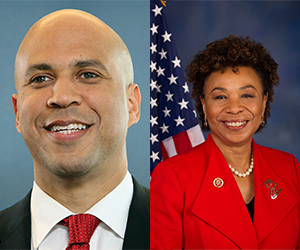
Legislation would end federal cannabis prohibition, help address harms caused by decades of criminalization, and increase access to legal industry
WASHINGTON, D.C. – On Thursday, lawmakers reintroduced legislation that would end federal marijuana prohibition and allow states to determine their own cannabis policies without the threat of federal interference. The Marijuana Justice Act was originally introduced by Rep. Barbara Lee and Sen. Cory Booker and garnered 43 cosponsors in the House and six in the Senate in the last session. It is currently the most far-reaching and comprehensive cannabis policy reform legislation being considered in Congress. The bill would remove marijuana from the Controlled Substances Act schedule and eliminate federal criminal penalties for possession, cultivation, manufacture, import, and export of cannabis.
“Regulating cannabis is working in the states and we’re pleased to see that this Congress appears to be making federal reform a higher priority than in previous years,” said Aaron Smith, executive director of the National Cannabis Industry Association. “Hopefully this legislation will get the serious consideration it deserves. The country is ready and eager to move past prohibition, start addressing the impact it has had on marginalized communities, and explore the economic potential of replacing criminal markets with regulated small businesses.”
The bill includes several provisions to address the historically discriminatory enforcement of cannabis laws and sentencing. All federal cannabis use or possession convictions would be expunged under the measure, and a special grant program would be created through the Department of Housing and Urban Development to reinvest in communities that have been most impacted by prohibition. It would also allow Congress to withhold federal funds from states that exhibit racially disproportionate arrest and incarceration rates under their own cannabis laws.
“We cannot talk about making cannabis legal without considering how to undo the harms caused by years of prohibition,” continued Smith. “As more and more states move to regulate cannabis, it is completely unfair to continue saddling people with the lifelong negative effects that come with a criminal record, nor should a past arrest be a barrier to taking part in the burgeoning cannabis industry. While much more work needs to be done at the state and federal level, the Marijuana Justice Act sets an excellent example for others to follow, and will make it much easier for states to make necessary reforms to address this injustice and maximize the opportunities created by a legal cannabis market.”
Rep. Lee is also reintroducing a cannabis-related bill and resolution in the House today. The Restraining Excessive Federal Enforcement & Regulations of Cannabis (REFER) Act would prevent the federal government from using funds to interfere with state cannabis programs, target businesses or individuals in compliance with state cannabis laws, or penalize financial institutions that work with those businesses. The Realizing Equitable & Sustainable Participation in Emerging Cannabis Trades (RESPECT) Resolution recognizes that the people most harmed by the racially disparate enforcement of prohibition benefit the least from some of the state and local policies regulating the cannabis market. The resolution urges officials and lawmakers to implement a series of practices when granting licenses for legal cannabis businesses to improve access for these communities to the nascent industry, such as minimal application and license fees, no caps on the number of licenses, increased local control of the licensing process, and removing broad felony and cannabis convictions as automatic disqualifiers for participation.
With dozens of supportive members of Congress now in office and Democrats in control of key federal committees, advocates are confident that comprehensive cannabis policy reform legislation will be actively considered in the House in the 2019 session. Draft legislation to allow banks to more easily work with the cannabis industry received a supportive hearing in the House Consumer Protection and Financial Institutions Subcommittee earlier this month, and bills to address unfair federal taxation of cannabis businesses, veteran access, and increased research are expected to make significant progress this year as well.
Cannabis is legal for adults in ten states and the District of Columbia, and 33 states, D.C., as well as several territories have effective medical cannabis laws. The substance is legal in some form in 47 states. In February, legislative committees in four states approved cannabis legalization bills, and many more states are expected to consider the issue this year.
Congressional Subcommittee Holds Hearing on Providing Safe Harbor for Banks to Work with Legal Cannabis Businesses

House Financial Services Subcommittee considers legislation that would make it easier for cannabis businesses to access banking services if they are in compliance with state law
WASHINGTON, D.C. – Members of the House Financial Services Subcommittee on Financial Institutions and Consumer Protection heard testimony Wednesday from representatives of the financial sector, the cannabis industry, law enforcement, and the treasurer of California in support of legislation that would make it easier for banks to work with legal cannabis businesses without fear of federal prosecution. The committee discussed a draft of the Secure and Fair Enforcement (SAFE) Banking Act, which is expected to be introduced in the House of Representatives this month by Rep. Ed Perlmutter (D-CO) and Rep. Denny Heck (D-WA). The bill would address the public safety and transparency issues that are created by current banking restrictions which discourage most financial institutions from being able to have cannabis businesses as clients.
“Congress has an opportunity to make a simple policy change that will greatly benefit communities and small businesses by approving cannabis banking reform,” said Aaron Smith, executive director of the National Cannabis Industry Association (NCIA). “Representatives Perlmutter and Heck should be commended for pushing for this hearing so that this issue can get the attention it deserves and we can move toward a sensible policy that will increase public safety and transparency in this burgeoning industry.”
Under current restrictions, most financial institutions are unwilling to work with cannabis businesses due to the threat of federal prosecution. While cannabis is legal in some form in 47 states, it is still illegal under federal law, and banks that work with them could be charged with crimes including money laundering.
Dealing solely in cash also creates difficulties for state regulators and tax collectors, from logistical problems to limited transparency. Most crucially, while research shows that cannabis businesses are associated with decreases in crime where they are located, the fact that they are mostly forced to operate on a cash-only basis makes them attractive targets for crime themselves, putting employees, customers, and the general public at risk.
“We have the power in this committee to prevent murders and robberies, here today,” said Rep. Perlmutter during the hearing.
Rep. Perlmutter and Rep. Heck are expected to introduce an updated version of a bill that they introduced last year, the SAFE Banking Act, that would resolve this issue by protecting banks and creating a safe harbor for them to work with regulated cannabis businesses. At the end of the last congressional session, the bill had garnered nearly 100 cosponsors.
NCIA submitted written testimony for this hearing, along with dozens of testimonials from cannabis business owners and employees about their experiences with the currently problematic financial services environment.
###
Senate Legislation to End Federal Cannabis Prohibition Introduced Today

S. 420 would deschedule cannabis and create a federal excise tax on legal cannabis products; companion legislation would bring federal laws more in line with legal states and eliminate existing burdensome tax penalties for cannabis businesses
WASHINGTON, D.C. – Legislation that would effectively end federal cannabis prohibition was introduced in the Senate today by ranking Senate Finance Committee member Sen. Ron Wyden (D-OR). The Marijuana Revenue and Regulation Act, or S. 420, would remove cannabis from the Controlled Substances Act (CSA), set an excise tax for state-legal cannabis producers, and regulate the substance similarly to alcohol.
“Momentum is clearly building for comprehensive cannabis policy reform in Congress, and this legislation will help push lawmakers closer to ending federal prohibition in the near future,” said Aaron Smith, executive director of the National Cannabis Industry Association (NCIA). “It is time to let states to determine their own cannabis policies without fear of interference and allow regulated businesses to replace the illicit market.”
The Marijuana Revenue and Regulation Act is part of a larger legislative package that will address a variety of cannabis policy issues in Congress this year. The Responsibly Addressing the Marijuana Policy Gap Act would remove most federal criminal penalties for cannabis businesses that are in compliance with state law, create a national expungement process for cannabis-related criminal records, and address issues related to travel, housing, veterans, and Native American tribes. The Small Business Tax Equity Act would amend section 280E of the federal tax code to allow legal cannabis operations to take the ordinary business deductions afforded to other industries.
Removing cannabis from the CSA and fixing the 280E tax code issue would be a significant benefit for the cannabis industry, but advocates are concerned that the excise tax could be problematic if it is set too high or escalates too quickly, and could trade one overly burdensome tax for another.
“This legislation would be a boon for the cannabis industry and for states that have enacted effective laws, but it is vital that the federal tax rates be established in a way that does not incentivize the continuation of the illicit market,” continued Smith. “It is equally important that small businesses, which would be disproportionately impacted by heavy federal taxes of any sort, be allowed to stay competitive in the industry. We will continue to work with lawmakers to find a rate that is fair to all parties.”
NCIA’s guide for sensible and equitable federal taxation can be found here.
###
Attorney General Nominee Vows to Respect State Marijuana Laws

William Barr stated in confirmation hearing Tuesday that he would not use federal resources to target state-legal cannabis businesses, urged Congress to end legal conflict
WASHINGTON, D.C. – During Senate confirmation hearings on Tuesday, attorney general nominee William Barr stated that he would respect state cannabis laws and legal businesses when it comes to enforcing federal marijuana statutes. In response to questioning from Sen. Cory Booker (D-NJ) and Sen. Kamala Harris (D-CA), Barr stated that if confirmed, his “approach to this would be not to upset settled expectations and the reliant interests that have arisen as a result of the Cole memorandum.” Upon further questioning, he stated that he “is not going to go after companies that have relied on the Cole memorandum.”
The Cole memo, issued in 2014, directed federal prosecutors not to use resources to target businesses or individuals that were in compliance with state cannabis laws and met a set of public safety criteria. That guidance, which gave many businesses and state governments the confidence to move forward with implementing regulated cannabis markets, was rescinded in January 2018 by then-Attorney General Jeff Sessions.
“Mr. Barr is correct in acknowledging that many Americans rely on the legal cannabis industry and the successful state marijuana programs operating throughout the country today,” said Aaron Smith, executive director of the National Cannabis Industry Association. “His pledge not to use Department of Justice resources to undermine state laws provides assurance to over one hundred thousand cannabis industry employees, thousands of legal businesses, and the many state and local governments reliant upon marijuana tax revenue.”
During the hearing, Barr stated that he supports federal marijuana prohibition even though he would continue the policy of non-enforcement, but was critical of the disparity between state and federal law, calling on Congress to pass legislation that would address this issue.
“State marijuana laws are successfully replacing criminal markets with responsible small businesses and it is long past time for Congress to enact legislation that respects those laws,” continued Smith. “We will continue to work with lawmakers to make sure it is a priority during this session.”
Several comprehensive cannabis policy reform bills that would allow states to determine their own laws without federal interference are expected to be considered this year, including the STATES Act and the Marijuana Justice Act, as well as a number of other bills related to issues such as allowing banks to more easily work with cannabis businesses and reforming the tax code to treat the cannabis industry fairly.
Historic Farm Bill Allowing State Hemp Programs Signed Into Law

Historic Farm Bill Allowing State Hemp Programs Signed Into Law
States may now apply to start producing hemp and hemp-derived products under Department of Agriculture supervision
WASHINGTON, D.C. – For the first time since the end of World War II, states may now create federally legal hemp programs under the 2018 farm bill, which President Trump signed into law today. The bipartisan Agriculture Improvement Act of 2018, which passed overwhelmingly in the Senate and House last week, would allow states to submit plans created by their respective Secretaries of Agriculture in coordination with their governors and chief law enforcement officers to the Department of Agriculture to grow and process hemp and hemp-derived products.
“The lifting of the federal ban on non-psychoactive hemp is a concrete sign that the ‘reefer madness’ which first led to its criminalization is finally coming to an end,” said Aaron Smith, executive director of the National Cannabis Industry Association (NCIA). “This Farm Bill is a step in the right direction for comprehensive cannabis policy reform and will help fuel discussions in Congress about the best ways to end federal prohibition and create a regulated national cannabis market.”
Under the new law, state applications would need to include methods for tracking land used for hemp production and audit producers to make sure that the hemp they are growing contains less than .3% THC. Programs would need to be approved by the Secretary of Agriculture in consultation with the Attorney General within 60 days of being submitted. States would not be permitted to ban the transportation of hemp and hemp products through their jurisdictions, but production and sales would only be permitted in states with approved programs.
The bill also contains a number of directives for research on hemp and hemp cultivation. These will help inform the Secretary of Agriculture in producing reports for Congress and eventually developing a standardized hemp production structure for all state applicants.
Hemp-derived cannabidiol (CBD) would be exempted from the Controlled Substances Act (CSA) in states with approved programs, but CBD will remain a Schedule 1 substance under the CSA and illegal at the federal level. The Farm Bill also does not impact the current Food & Drug Administration ban on CBD products or its ability to regulate the substance in the future.
The law prevents anyone with a drug-related felony from working in legal state hemp industries, hindering many people who have been impacted by the unequal enforcement of cannabis prohibition from participating in the economic opportunities created by new programs. However, a late compromise led to the inclusion of a 10-year sunset period from either the date of conviction or the start of the state program, whichever is more recent.
Legislation to Improve Marijuana Access for Veterans Introduced in Congress
Legislation to Improve Marijuana Access for Veterans Introduced in Congress
Three bills would change how Veterans Affairs deals with medical marijuana, improve training and research
WASHINGTON, D.C. – In observance of Veterans Day, a series of bills to expand access to medical cannabis for veterans were introduced in the House of Representatives on Wednesday. The legislation, introduced by Rep. Matt Gaetz (R-FL) and Rep. Seth Moulton (D-MA), a Marine Corps veteran who served four tours in Iraq, would facilitate research into current cannabis use by veterans, establish new policies at the Department of Veterans Affairs (VA) that respect medical cannabis treatments, and provide medical cannabis training to primary care providers in the VA system.
“Our veterans are seeking alternative options to opioids and we should be supporting their desires not to be addicted to painkillers,” said Rep. Moulton. “Let’s not kid ourselves, people are using marijuana – including our veterans. We have an obligation to regulate it and make it as safe as possible. We also have an obligation to make sure our veterans are getting the best healthcare in the world.”
The Department of Veterans Affairs Survey of Medicinal Cannabis Use Act of 2018 would direct the Secretary of Veterans Affairs to seek to enter into an agreement with a federally funded research and development center to conduct surveys to measure cannabis use by veterans. The surveys would obtain information directly from patients as well as health care providers to determine current cannabis use and attitudes, symptoms or conditions treated, effects, and ingestion practices.
The second bill, the Department of Veterans Affairs Policy for Medicinal Cannabis Use Act of 2018, would encourage veterans to discuss their cannabis use with health care providers in the VA system, and prevent discrimination or denial of treatment from the VA for veterans who consume cannabis or participate in legal state medical cannabis programs.
The Department of Veterans Affairs Medicinal Cannabis Education Act of 2018 would require the VA to train all primary care providers in their system in the use of medical cannabis, as well as to partner with medical schools that include such training in their curriculums.
“For too long, our honored veterans have faced repeated hurdles when trying to access medical cannabis,” said Aaron Smith, executive director of the National Cannabis Industry Association (NCIA). “The bills introduced by Rep. Moulton and Rep. Gaetz today will not only help them use the medicine that works for them but will move the VA closer to understanding medical cannabis, which is legal in a vast majority of the country and having a positive impact on the issues facing veterans every day.”
In November of last year, an American Legion poll showed overwhelming support for medical cannabis and increased research among veteran households.
There are now 47 states that allow cannabis to be used in some form. Thirty-three of those states have effective medical cannabis laws, and ten have laws making cannabis legal for adults.
Marijuana Ballot Measures Pass in Three States as Midterm Elections Pave the Way for Progress in 2019
FOR IMMEDIATE RELEASE
Wednesday, November 7, 2018
CONTACT:
Morgan Fox, Media Relations Director
216-334-9564, Media@TheCannabisIndustry.org
Michigan becomes 10th state to make cannabis legal for adults, Missouri and Utah voters approve medical marijuana initiatives, and supporters of marijuana policy reform win races across the country
WASHINGTON, D.C. – The 2018 midterm elections represent a major victory for marijuana policy reform advocates and the legal cannabis industry. Voters in Michigan approved a ballot measure Tuesday that will make cannabis legal and regulated for adults, making it the first Midwest state to legalize cannabis and setting the stage for regulated businesses to replace the illicit market there. Missouri and Utah approved medical cannabis ballot measures as well, providing access to effective medicine for millions of people and firmly solidifying a supermajority of states with robust medical marijuana laws. Voters in Missouri supported their medical cannabis initiative in greater numbers than the winning Republican Senate candidate, Attorney General Josh Hawley.
“This election proves that U.S. voters are ready and eager for comprehensive cannabis policy reform at the state and federal level,” said Aaron Smith, executive director of the National Cannabis Industry Association. “This is no longer a third-rail issue. Members of Congress need to listen to their constituents, allow states to determine their own cannabis policies, and start treating this burgeoning legal industry fairly. ”
With dozens of supportive congressional candidates winning on Tuesday and Democrats about to take control of key federal committees, advocates are confident that marijuana policy reform legislation will be actively considered in the House in the 2019 session. Bills to allow banks to more easily work with the cannabis industry and to address unfair federal taxation of cannabis are expected to make significant progress next year.
Voters in 12 states elected gubernatorial candidates that publicly support making cannabis legal for adults last night. Governors-elect Gavin Newsom in California, Jared Polis in Colorado, and J.B. Pritzker in Illinois all made marijuana policy reform a central issue in their campaigns.
Cannabis is now legal for adults in ten states and the District of Columbia, and 33 states have effective medical marijuana laws. Cannabis is legal in some form in 47 states.
###
The National Cannabis Industry Association (NCIA) is the largest cannabis trade association in the U.S. and the only organization broadly representing cannabis-related businesses at the national level. NCIA promotes the growth of a responsible and legitimate cannabis industry and works toward a favorable social, economic, and legal environment for that industry in the United States.
Legal Marijuana Sales Begin in Canada – U.S. Industry Org Urges Congress to Follow

Canada Cannabis Legalization Takes Effect Today – National Cannabis Industry Association Urges Congress to End Prohibition or Fall Behind
Nation’s largest marijuana trade organization warns U.S. will be left behind in global market, joins Rep. Lou Correa and other members of Congress in call to end border policy that discriminates against cannabis professionals
WASHINGTON, D.C. – As Canadian laws making marijuana legal for adults went into effect and licensed retail stores opened throughout the country on Wednesday, the U.S. cannabis industry is calling on federal lawmakers to do the same to avoid falling behind in the burgeoning global cannabis market. The National Cannabis Industry Association (NCIA), the largest trade association for legal cannabis businesses in the U.S., is urging Congress to pass comprehensive marijuana policy reforms that would allow states to determine their own marijuana laws, provide safe harbor to financial institutions that want to work with cannabis businesses, address unfair taxation, promote social equity in the industry, and permit free trade. NCIA is also asking U.S. officials to follow the Canadian government’s lead in pardoning people with marijuana convictions.
“The evidence is clear that regulating marijuana works in the states that have done so, and we are about to see that on a national scale in our neighbor to the North,” said Aaron Smith, executive director of the National Cannabis Industry Association (NCIA). “Congress needs to act now to level the playing field. Every moment they delay hurts American businesses and communities, and unnecessarily steers consumers to the criminal market.”
NCIA is also supporting efforts led by Rep. Lou Correa (D-CA) to change current Customs & Border Protection policy which prevents Canadians who are involved in the legal cannabis industry from traveling in the U.S. on business, even to states where cannabis is legal. Rep. Correa announced on Wednesday that he is gaining support from bipartisan members of Congress requesting that the Department of Homeland Security end this policy immediately.
“This sort of discrimination against the cannabis industry is outrageous,” continued Smith. “If people in any other legal industry were treated like this, or if it were Canada denying entry to U.S. citizens based on their professions, there would be national outcry.”
NCIA’s report titled “How the U.S. is Falling Behind in the Regulated Global Cannabis Market,” explains how a lack of federal regulation and the inability to expand beyond state borders means U.S. cannabis companies are constrained in their ability to grow and are at a competitive disadvantage to cannabis companies in other countries, with Canada and Israel being the most prominent examples.
The launch of Canada’s legal marijuana program comes as residents of four states prepare to vote on cannabis ballot initiatives in November, and as the issue plays an increasingly important role in politics. Michigan and North Dakota are poised to become the next states to make marijuana legal and regulated for adults, and medical marijuana initiatives will be on the ballots in Missouri and Utah.
























